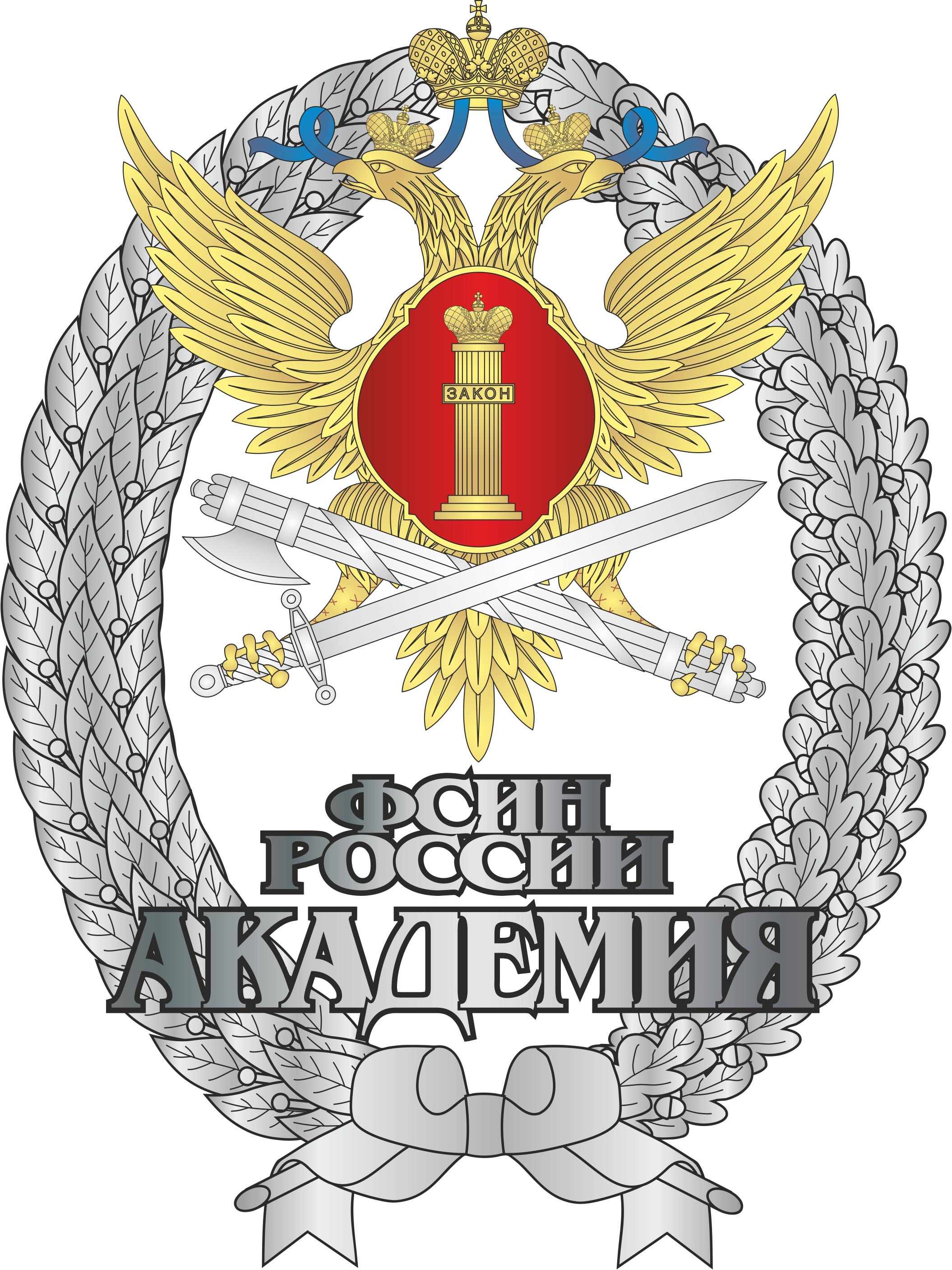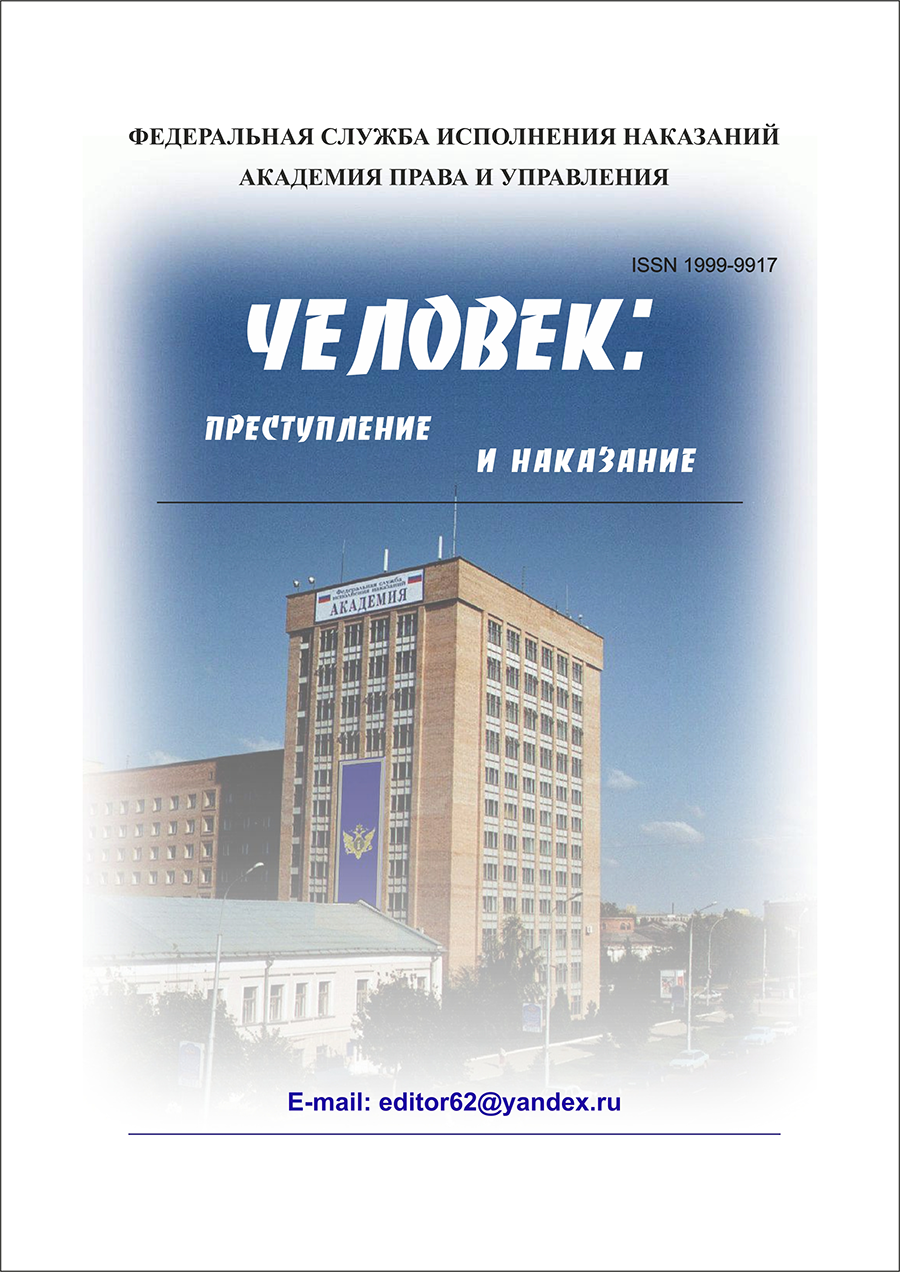UDC 343.85
The article analyzes the prison subculture from the standpoint of systems theory. It is noted that the existence of informal strata of convicts and stable prison caste formation can be justified by the laws of synergetics, a science that explains the behavior of dissipative structures. It is shown that the main characteristics of a self-organizing system are characteristic of a prison society structured according to the stratification type. From the point of view of systems theory, possible models of countering the expansion of the prison subculture are considered: 1) destruction of the system; 2) the introduction of innovative elements with the formation of new laws of interaction of individual elements of the system; 3) depriving the self-organizing system of the ability to self-replication. The most acceptable choice in the existing conditions is the last option. The conclusion is made about the prospects of the current penitentiary policy of our state.
self-organizing system, theory of systems, synergetics, prison subculture, penitentiary system, execution of punishment, fluctuation
1. Nesterov, A. V. 2002, ‘Philosophy of Systems’, in Scientific and Technical Information, Series 1, Organization and methodology of information work, iss. 4, pp. 1-5.
2. Mesarovich, M. & Takahara, Ja. 1978, General theory of systems: mathematical foundations, Mir, Moscow.
3. Ponomarev, S. B. 2017, Criminal subculture from the perspective of human ethology and systems theory, Izhevsk.
4. Dol'nik, V. R. 1993, ‘Ethological tours of the forbidden gardens of the humanities’, Nature, iss. 1, pp. 72-85.
5. Haken, G. 1980, Synergetics, Moscow.
6. Nikolis, G. & Prigozhin, I. R. 1979, Self-organization in nonequilibrium systems: from dissipative structures to orderliness through fluctuations, Moscow.
7. Mokrecov, A. I. & Novikov, V. V. 2006, Personality of the convicted person: social and psychological work with various categories of persons serving sentences, Moscow.
8. Saridis, D. 1980, Self-organizing stochastic control systems, Moscow.
9. Prigozhin, I. R. & Stengers, I. 1986, Order out of Chaos: a new dialogue between man and nature, Moscow.
10. Hanipov, R. A. 2008, ‘The rootedness of prison and criminal practices in the culture of Modern Russian society’, The World of Russia, iss. 3, pp. 132-148.
11. Gernet, M. N. 1956, The history of the Tsar's prison, Moscow.
12. Sundurov, F. R. 1976, Socio-psychological and legal aspects of correction and re-education of offenders, Kazan'.
13. Sokolov, S. A. 2009, ‘Problems of determining criteria and degree of correction of persons sentenced to imprisonment’, in History of development and current state of penitentiary science, medicine and practice of execution of punishments: materials of the International Scientific and Practical Conference, pp. 66-70, Moscow.
14. Hooghe, M., Vanhoutte, B., Hardyns, W. & Bircan, T. 2011, ‘Unemployment, inequality, poverty and crime: spatial distribution patterns of criminal acts in Belgium’, Br. J. Criminol, iss. 1, pp. 1-20.
15. Rodger, J. J. 2010, ‘Criminalising social policy: anti-social behaviour and welfare in a de-civilised society’, Br. J. Criminol, iss. 1, pp. 145-147.
16. Ivanova, A. A. 2017, ‘Criminal culture as a determinant of crime’, All-Russian Criminological Journal, iss. 4, pp. 671-681.









